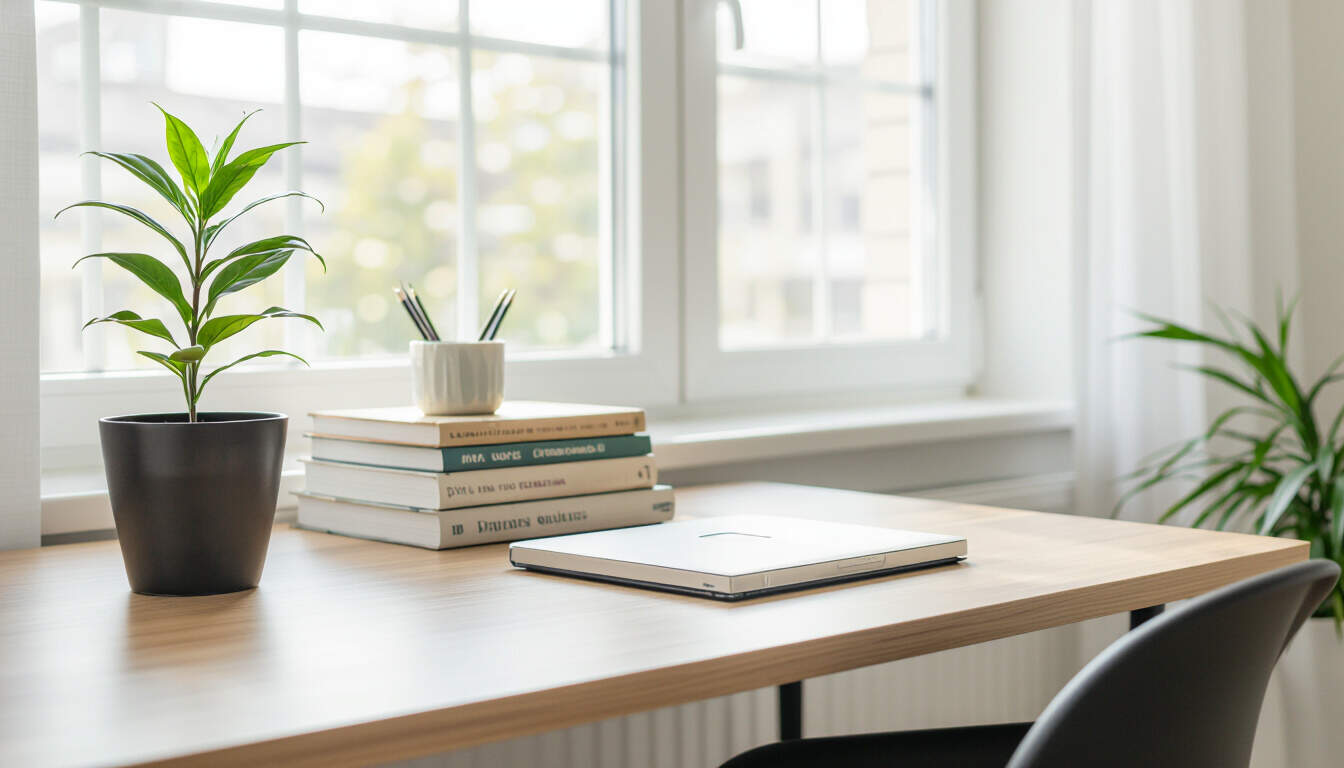Minimalism and Cognition: Practical Ways to Lighten Mental Load
 by Thaddeus Blanda
by Thaddeus Blanda
Discover how minimalism can help ease cognitive overload by simplifying your surroundings and routines. This approach offers practical strategies for students and professionals to enhance focus and productivity through everyday changes.

In our busy lives, the amount of information we process can feel overwhelming. Cognitive load refers to the mental effort needed to handle tasks and information. By adopting minimalism, individuals can reduce this burden and improve clarity.
Minimalism involves keeping only what is essential, which can lead to a calmer mind. For students facing heavy workloads, this means focusing on key study materials without unnecessary distractions.
One effective strategy is to start with your physical environment. A cluttered space can add to daily stress. Begin by clearing out items that no longer serve a purpose. This process helps create a more serene setting for work and relaxation.
Minimalism in your home can make a big difference. For example, organize your desk to include only necessary tools like a computer and notebook. This setup allows for better concentration during study sessions.
Another area to consider is digital clutter. Our devices often hold endless notifications and apps that demand attention. Take time to review and remove apps that aren't useful. This step can free up mental space and reduce interruptions.
When it comes to routines, simplifying daily habits is key. Create a schedule that includes breaks and prioritizes important tasks. For professionals juggling multiple responsibilities, this means setting boundaries around work hours.
Lists can be helpful tools here. Make a simple to-do list each day, focusing on three main goals. This method prevents the mind from being overloaded with too many objectives at once.
Cognitive load often builds from multitasking. Instead, try single-tasking where possible. Dedicate specific times to one activity, like reading or writing, without switching to other tasks.
Incorporating mindfulness practices can complement minimalism. Spend a few minutes each day reflecting on your priorities. This habit encourages a more intentional approach to life.
For those in cognitive science, research shows that reducing external stimuli can enhance memory and learning. Applying minimalism principles can translate these findings into daily practice.
Tips for Getting Started
To make these ideas actionable, here are some practical tips:
- Assess your space: Go through one room at a time and remove items you haven't used in the past six months.
- Digital detox: Set aside time each week to clean up your phone or computer, deleting unused files and unsubscribing from unnecessary emails.
- Streamline meals: Plan simple, nutritious meals in advance to avoid decision fatigue.
- Prioritize sleep: Ensure your sleeping area is minimal and comfortable to support restful nights.
- Track progress: Keep a journal to note how these changes affect your energy levels and focus.
These tips are adaptable for different lifestyles. Students might apply them to study areas, while professionals could use them in office settings.
Over time, the benefits become clear. People often report feeling more in control and less fatigued. This shift can lead to greater productivity and satisfaction.
By integrating minimalism into your routine, you build a foundation for sustained mental well-being. Remember, small changes can accumulate into significant improvements.
In closing, embracing these strategies offers a path to lighter cognitive demands. Whether you're a student or a professional, the results can be rewarding.
